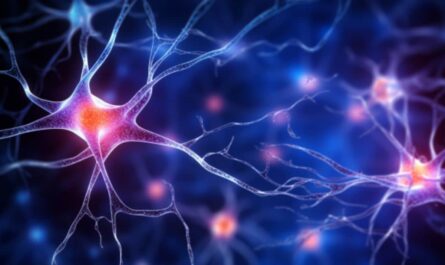A recent study conducted by DNA detectives from QUT has uncovered a biological mechanism that leads to a reduction in migraine frequency among chronic migraine sufferers after gradually discontinuing migraine medications. The study, titled “Alterations in DNA methylation associate with reduced migraine and headache days after medication withdrawal treatment in chronic migraine patients: a longitudinal study,” was published in Clinical Epigenetics. Researchers identified epigenetic changes in two genes that are associated with the transition from episodic migraines to chronic migraines.
According to Professor Divya Mehta, the first author and geneticist from QUT’s Center for Genomics and Personalized Health, chronic migraines affect approximately 2% of the general population and are characterized by having headaches on 15 or more days a month for at least three months, with eight of those days fulfilling migraine criteria. The overuse of acute headache pain relief and other medications plays a significant role in the development and persistence of chronic migraines.
Collaborating with colleagues from Leiden University Medical Center (LUMC) in the Netherlands, the research team aimed to understand the process of migraine chronification, where migraines become more frequent in some individuals, as well as explore ways to reverse this process.
The study focused on investigating changes in DNA methylation, an epigenetic modification that adds chemical ‘tags’ to DNA molecules in response to environmental factors, including therapeutic drugs. These tags can ‘switch’ genes on or off.
Dr. Heidi Sutherland, co-first author and molecular biologist from QUT’s Center for Genomics and Personalized Health, explained that DNA was analyzed from blood samples taken from chronic migraine patients at the beginning and after a 12-week period of withdrawing from medication treatment. The patients recorded their headache patterns in a diary, and those who experienced a greater than 50% reduction in monthly headache and migraine days were classified as responders. The responders were compared with the non-responders to identify DNA methylation changes associated with their treatment response.
At the end of the 12-week withdrawal period, 59.8% of the patients had reverted to episodic migraines.
The study revealed epigenetic changes in the HDAC4 gene, which were linked to a reduction in headache days following the withdrawal of acute medication. The researchers also found that DNA methylation within the MARK3 gene was associated with a decrease in migraine days. Lower DNA methylation levels in the MARK3 gene at baseline were found to be a predictive biomarker for reduced monthly migraine days.
These findings provide valuable insights into the genetic mechanisms behind chronic migraines and offer potential targets for future therapeutic interventions. The researchers hope that further exploration of epigenetic modifications could lead to more personalized and effective treatment approaches for chronic migraine sufferers.
*Note:
1. Source: Coherent Market Insights, Public sources, Desk research
2. We have leveraged AI tools to mine information and compile it



